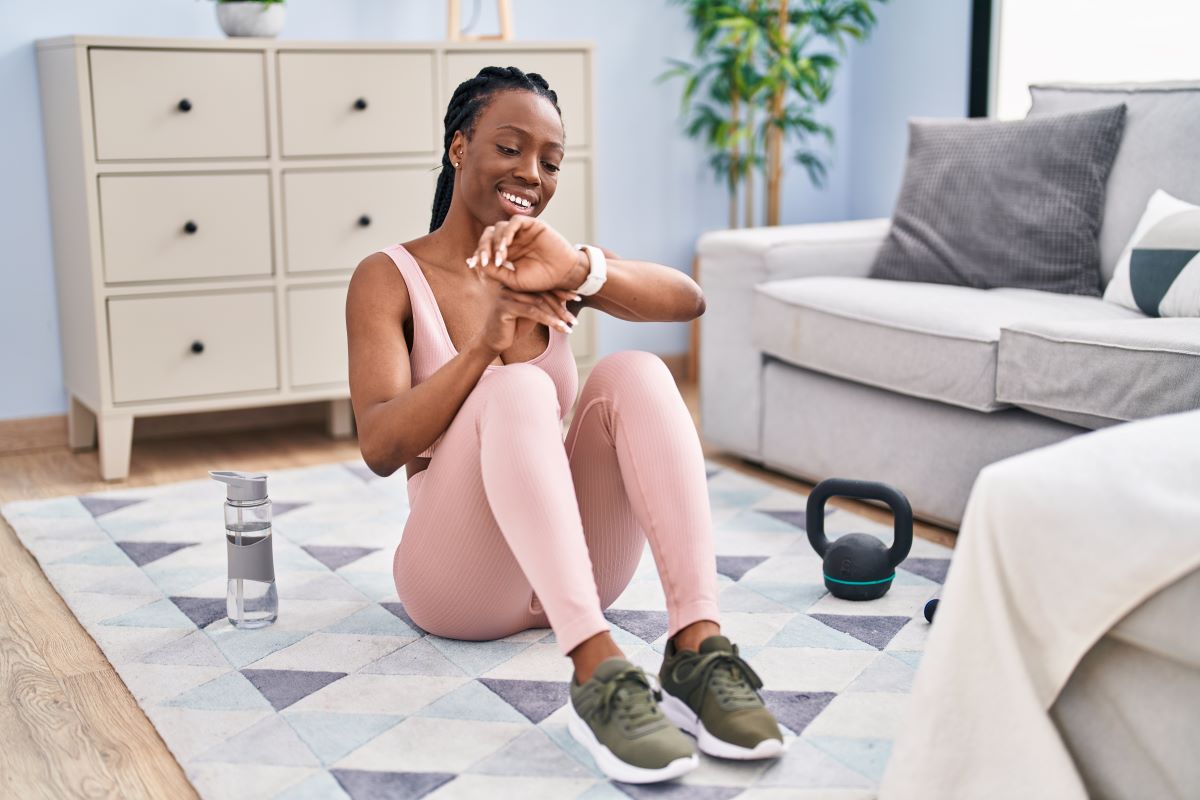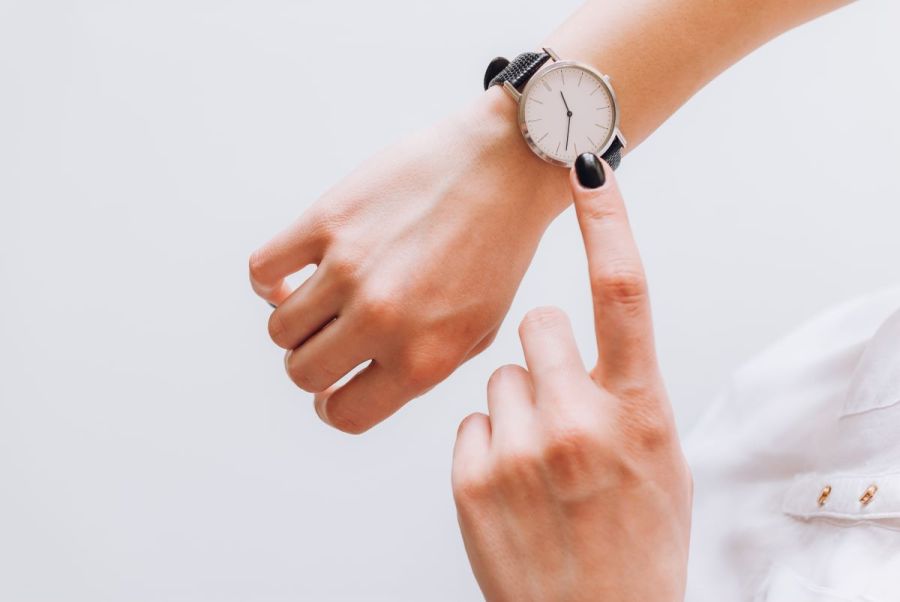Feeling time poor? A simple shift in your psychology will help you find more time in the day to exercise, says Ruby Deevoy.
You’ll well know that once you get a workout in, everything feels better. You’re more productive, your mood is lifted, and the day seems to run a little more smoothly. But there are days, particularly when you’ve fallen out of the habit of regular exercise, when it just feels impossible to find time in the day to exercise; work piles up, other responsibilities take over and soon you’re left feeling drained and wondering how you ever managed to squeeze in a run, let alone get down the gym!
This is what’s known as feeling “time poor” – something many people feel is an obstacle to getting fit and doing anything else that isn’t an urgent priority. As a result, one-third of the world’s population aged 15 years and above engages in insufficient physical activities. Consequently, associated health problems are on the rise and physical inactivity accounts for six per cent of all global mortality.
But it turns out that, for most of us, not having enough time really is all in the mind and it can be remedied with a few simple lifestyle changes.

Getting organised
It might seem hard to believe, but studies have shown that time management styles make all the difference: being “reactive” makes you feel less in control of your day and therefore leaves you feeling as though you have less time, whereas a more “active” style of time management, i.e. scheduling and structuring your days, allows you to feel in control of your time and accomplish more.
‘When you don’t plan your week, it can feel as though there are too many moving parts to handle. Scheduling the week offers so much clarity, particularly if you write it down,’ says personal trainer, Katie Quinn.
‘Doing so gives you back some mental bandwidth and control, allowing you to see that the week ahead is maybe not as full as you thought. It also gives you the opportunity to plan activities into the week that are just for you. This not only gives you something to look forward to, but also helps to make sure you’re putting energy in, not just expending it,’ she says.
Finding balance
Research has unearthed that people who simply think about conflicting goals, such as saving money versus buying nice things, or being healthy versus eating tasty foods, feel more stressed, anxious, and short on time. So again, organising yourself and creating a good balance in all areas of your life, including health and wellbeing, can leave you with what feels like more time to spare.
It may seem counterintuitive when you’re under the tyranny of the clock, but there’s also evidence to suggest that giving time to others and being more generous overall – volunteering, for example, or even paying for someone else’s coffee – can make you feel as if you have more time available.
A series of four experiments compared the effects of spending time on other people with wasting time, spending time on oneself, and even gaining a windfall of “free” time. Incredibly, it was found that spending time on others increased people’s sense of “time affluence”. Researchers considered that this may be a result of a boost in feeling one’s ability to reach goals or complete a task.
Split up your week to find time to exercise
Another thing that might keep you from spending time on exercise is the niggling thought that “time is money”. If you’re not working, you’re not earning. So, even if you know you’re more productive after a workout, you just can’t seem to get out of that money is time mindset. This is often more of an issue for high earners, because of how they perceive the value of their time. According to research, it’s quite common for those who make a lot of money to feel time starved, even if they work just as many hours as someone on a lower income.
However, your health is really the most valuable asset you have. ‘Putting your wellbeing first can feel alien and selfish, but have a think about your vision and values: do you value being fit and healthy? Is that more important than money? Thinking about this will help point you in the right direction for your decisions,’ says Katie.
‘If you schedule workouts into your diary, making them non-negotiable, this will help make sure you do them and fit other activities around them,’ says Katie, who suggests splitting your tasks within a week into the following: do now, do later, delete and delegate. ‘You’ll most likely find you can let go of things you don’t need to be doing right now to free up space, and there will almost certainly be stuff on your list you don’t even need to do at all!’

6 mindset hacks to improve time management
Fitness coach and personal trainer Katie Quinn shares her top tips on how to manage time effectively, so you can find time in your day to exercise:
1. PLAN IT OUT
At the start of the week, take 20 minutes to map out the week ahead using these headers: exercise, relaxation, work, social events, family time, meal planning/prep.
2. SERVE YOURSELF FIRST
More often than not, the tasks that pile up leaving you feeling stressed and time starved are actually things you need to do for yourself! Take care of your needs first, including your fitness, then other tasks will feel like water off a duck’s back.
3. TRIM YOUR “TO DO” LIST
Stick to three priorities each day to avoid the feeling overwhelmed, which is what leads to you feeling like there’s not enough time.
4. INCLUDE NON-NEGOTIABLES IN YOUR DAY
This doesn’t have to be anything big, it could just be taking five minutes to sit calmly with a cuppa first thing in the morning to bring in the day, or even to read a chapter of your favourite book before going on social media.
5. CONDENSE YOUR WORKOUTS
It’s more than possible to get in a good workout in just 20-30 minutes. This is the era of short, sharp busts of activity!
6. REFRAME YOUR THINKING
Have a good think about what exercise means to you for the bigger picture. It’s not only about being fit in the now, it’s about making sure you stay healthy for the long term, so you can take care of yourself and your family. This helps you see it as crucial, and not just a ‘nice to have’ thing that can be neglected when you get busy. Exercise can and should be one of your non-negotiables to help you feel your best and achieve more all round.
Related content:
- How to return to fitness after time off
- 10-minute full-body home workout (no equipment)
- How to motivate yourself to go to the gym
Words: Ruby Deevoy. Images: Shutterstock.








